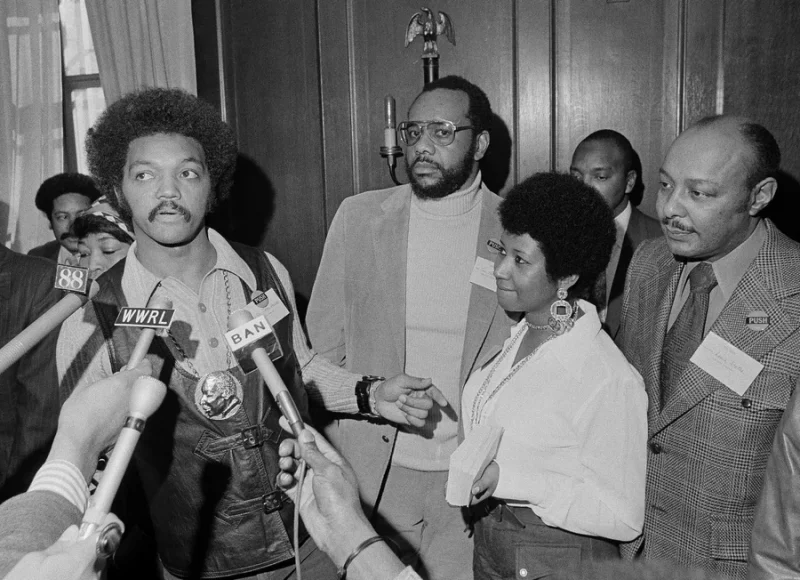The FBI monitored Aretha Franklin’s role in the civil rights movement for years
Share
Explore Our Galleries
Breaking News!
Today's news and culture by Black and other reporters in the Black and mainstream media.
Ways to Support ABHM?
By Ayana Archie, NPR

The FBI spent years surveilling the “Queen of Soul” Aretha Franklin, trying to gauge how involved she was with the civil rights movement, communism and the Black Power movement, a 270-page document shows.
Franklin, who died in 2018, was monitored ahead of several performances and attendances she made for civil rights groups, such as the National Association for the Advancement of Colored People and the Southern Christian Leadership Conference, whose first president was Dr. Martin Luther King, Jr.
Informants mentioned Franklin, a Detroit native, in separate memos for possibly appearing at the SCLC’s 1967 and 1968 national conventions, in Atlanta and Memphis, respectively. The FBI mailed several copies of “The Atlanta Voice” newspaper, which reported on her visit to town, to FBI offices around the country, as well as the U.S. attorney general and the Secret Service.
During this time, Franklin was, in fact, actively involved in the civil rights movement through her music and personal connections. In 1970, she offered to pay the bail of Angela Davis, a notable activist who had been arrested for kidnapping, conspiracy and murder and was later acquitted. Aretha’s father, Rev. C.L. Franklin, was also a close friend of King’s, and she went on to work with King, Jesse Jackson, Al Sharpton and others.
[…]
She was identified in a 1969 memo titled “Possible Racial Violence, Urban Areas, Racial Matters” when, in the year before, Denver concertgoers rioted after she refused to perform at the Red Rocks amphitheater due to not being properly paid.
Most people think of music when they think of Franklin, not her role in the civil rights movement.
While the FBI once surveilled the Black Panthers and other activists, the National Park Service now recognizes such organizations for their role in history.
See history in the making on ABHM’s news page.











Comments Are Welcome
Note: We moderate submissions in order to create a space for meaningful dialogue, a space where museum visitors – adults and youth –– can exchange informed, thoughtful, and relevant comments that add value to our exhibits.
Racial slurs, personal attacks, obscenity, profanity, and SHOUTING do not meet the above standard. Such comments are posted in the exhibit Hateful Speech. Commercial promotions, impersonations, and incoherent comments likewise fail to meet our goals, so will not be posted. Submissions longer than 120 words will be shortened.
See our full Comments Policy here.